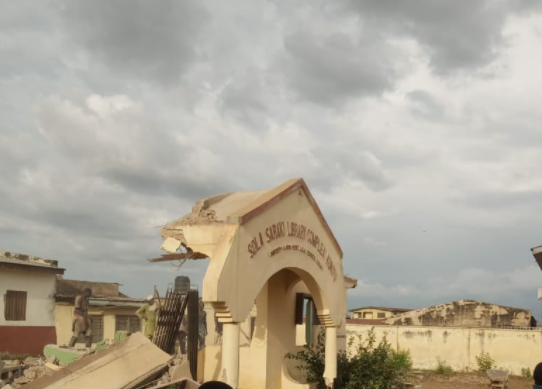Businesses are currently bearing the brunt of the decision to shut down telecommunications services in some states in north-west region of the country, according to a report by SB Morgan (SBM) Intelligence.
The report, titled, “Hostile reception – The impact of telephony shutdowns in North-West Nigeria,” surveyed 679 people in the week ending on September 16, 2021, to ascertain the impact of the shutdown of telecoms services.
On September 3, the Nigerian Communications Commission (NCC) ordered telecommunications companies to suspend their services in Zamfara to curtail the activities of bandits.
States like Katsina and Sokoto also followed suit by shutting telecommunications services in some LGAs.
Advertisement
The decision to shut down telephone services in some of these states has sparked divergent views.
From the survey, 238 respondents residing in Kaduna were selected, 234 respondents in Katsina, and 207 respondents in Zamfara.
The findings of the survey revealed that all the respondents in Zamfara have no access to phone services, 13 percent of the respondents in Kaduna have no access to phone services, while 3 percent of respondents in Katsina have no access to phone services.
Advertisement
On the impact on business activities, 61 percent of the respondents in Zamfara that have no access to phone services said the shutdown directive negatively impacted their business activities, while others said it has a mild effect on their businesses.
In Kaduna, 62 percent of the respondents with no access to phone said the directive has had a minimal effect on their work and business, while 29 percent said it had impacted negatively.
In Katsina, 57 percent of the respondents who had lost phone services said the directive had a very little impact of the shutdown directives on their businesses and day-to-day work life while 14% of the respondents have experienced a huge impact on their businesses.
On the impact on the security situation, 43 percent of the respondents in Zamfara think the security situation has since improved, owing to the shutdown directive, while only 18 percent of the respondents in Kaduna and 14 percent in Katsina believe the security situation has improved in their respective state since the shutdown directive.
Advertisement
The report noted that businesses in Zamfara are also bearing much of the brunt of the shutdown, perhaps because its economy is more agrarian than either Kaduna or Katsina.
“In a region already struggling with poverty and a high dependency ratio which puts pressure on incomes, the residents of these states are paying a high price for the ongoing military operations,” the report reads.
“This high economic cost leads us to recommend cessation of the telephone shutdown, in order for residents to resume business and for security officials to take a dispassionate look at the efficacy of operations so far.
“One of the major underlying drivers of the security situation in the north-west is poverty. Any action or actions that are taken which indicate an increase in economic hardship must be short-term and closely linked to results, so as not to pour fuel on the fire.
Advertisement
“Another issue with the shutdown of telephone services is the potential lack of accountability for military actions on the battlefield. News coverage out of the north-west is already sparse, and the directives equate to a media blackout which means there is only one version of events.
“The impact on the fundamental rights of residents in the affected states cannot go unmentioned as well as the general public’s right to know what actions are being taken in the name of security.”
Advertisement
Add a comment






